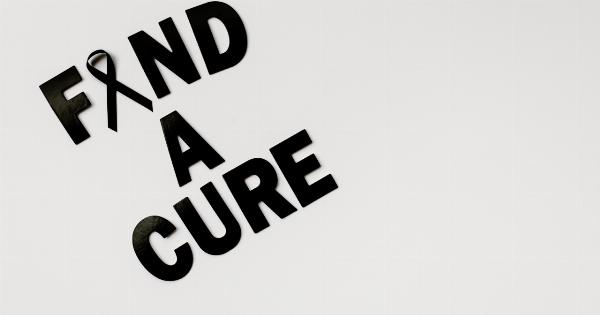When we think of breast cancer, the image that often comes to mind is that of a woman. However, it is important to note that breast cancer can also affect men.
While male breast cancer accounts for only a small percentage of all breast cancer cases, it is still a significant health concern that should not be overlooked. In this article, we will explore the risk factors associated with male breast cancer and identify the individuals who are most susceptible to developing this condition.
1. Age
Age is one of the primary risk factors for male breast cancer. This disease is relatively rare in men below the age of 35, but the risk increases substantially as age advances. The majority of male breast cancer cases occur in men over the age of 60.
It is crucial for older men to be aware of this risk and to regularly monitor their breast health.
2. Genetic Mutations
Genetic mutations can play a significant role in the development of male breast cancer. BRCA2 gene mutations, in particular, have been found to increase the risk of breast cancer in men.
Men who carry this gene mutation are not only at a higher risk of developing breast cancer themselves but also have an increased risk of other cancers such as prostate and pancreatic cancer.
3. Family History
Having a family history of breast cancer, especially in close relatives like a mother, sister, or daughter, can pose a higher risk for men as well.
It suggests a possible genetic predisposition to the disease, making regular screenings and awareness of symptoms even more critical for those with a family history of breast cancer.
4. Radiation Exposure
Prior exposure to radiation, especially during treatments like radiation therapy for other cancers, can contribute to an increased risk of male breast cancer.
Men who have undergone radiation therapy in the chest region should be vigilant about their breast health and report any changes or abnormalities they notice to their healthcare provider promptly.
5. Hormonal Imbalances
Hormonal imbalances can also play a role in the development of male breast cancer.
Conditions such as Klinefelter syndrome, which is characterized by low testosterone and higher estrogen levels, are associated with an increased risk of breast cancer in men. Liver disease and obesity may also contribute to hormonal imbalances that heighten the risk.
6. Alcohol Consumption
Excessive alcohol consumption has been linked to various health issues, including an increased risk of male breast cancer. It is recommended to moderate alcohol intake to minimize health risks and maintain overall well-being.
7. Testicular Conditions
Certain testicular conditions, such as undescended testicles (cryptorchidism) and conditions that affect normal testicular development, can elevate the risk of male breast cancer.
These conditions may be present from birth or develop later in life, but being aware of these risk factors can help men take necessary precautions and monitor their breast health closely.
8. Estrogen Treatment
Men who undergo estrogen treatment as part of gender transition or certain medical conditions may face an increased risk of male breast cancer.
It is essential for individuals undergoing estrogen therapy to discuss and evaluate this risk with their healthcare provider, ensuring appropriate monitoring and follow-up.
9. Occupational Hazards
Occupational hazards, such as exposure to certain chemicals, electromagnetic fields, or high temperatures, can potentially contribute to male breast cancer risk.
Certain industries and occupations may carry higher risks, making it crucial for individuals working in such environments to be aware of potential hazards and take necessary precautions.
10. Obesity
Obesity is a risk factor for various types of cancer, including male breast cancer. Excess body fat can lead to hormonal imbalances and promote the growth of cancer cells.
Maintaining a healthy weight through a balanced diet and regular exercise is not only important for overall health but can also help reduce the risk of breast cancer in men.
While these risk factors may increase the likelihood of developing male breast cancer, it is important to remember that anyone, regardless of their individual risk profile, can be affected.
Regular self-examinations and routine check-ups with a healthcare professional are crucial for early detection and prompt treatment, if required.


























